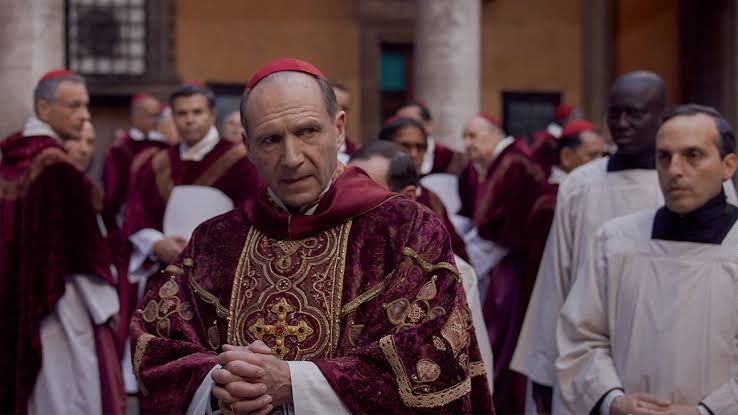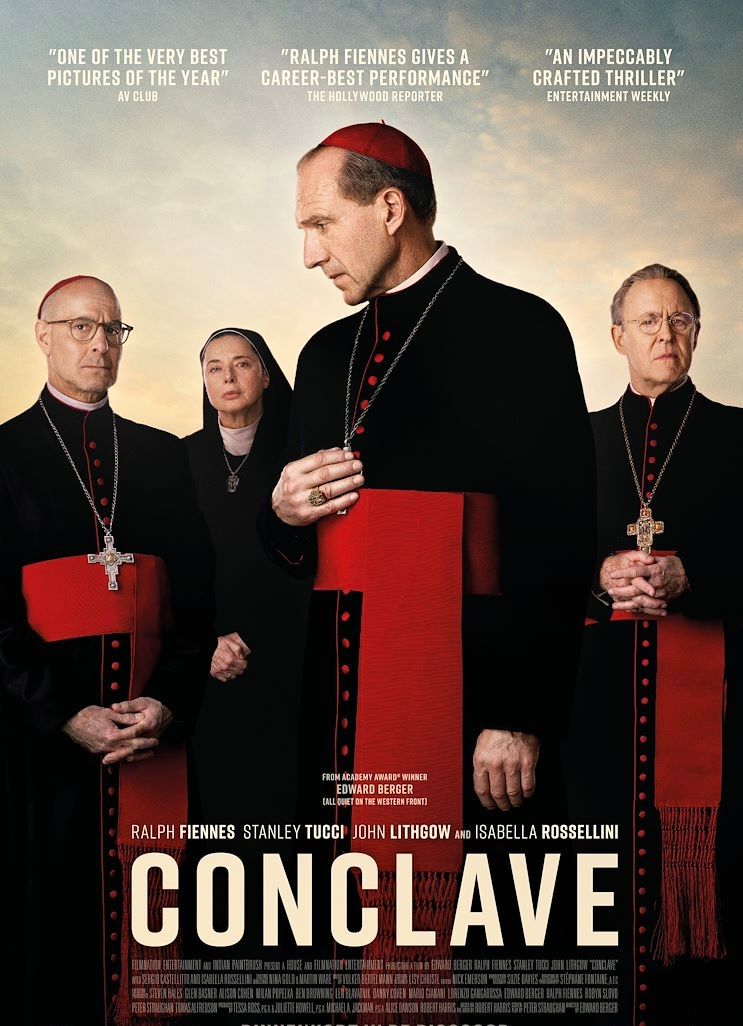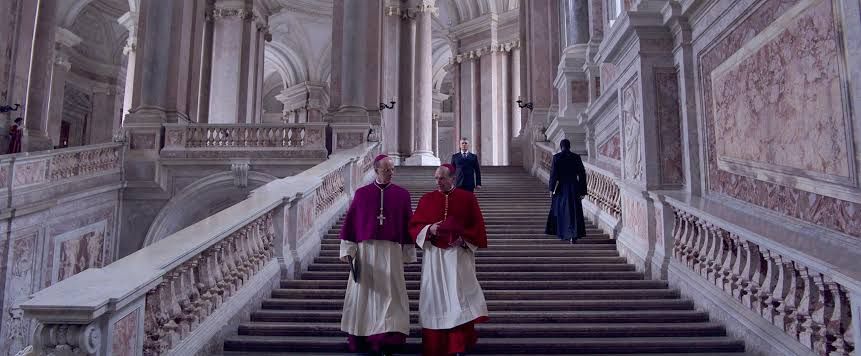At A Glance
- Based on the novel of Robert Harris and with a screenplay from Wolf Hall's Peter Straughan, this film follows what transpires upon the death of a Pope, the rituals and customs that occur within the Vatican as a new Pope is elected by the conclave of cardinals.

Here is a film that I predict will garner multiple nominations when the movie awards season commences in early 2025. Ralph Fiennes should be in the running for Best Actor category, while Director Edward Berger (All Quiet on the Western Front) could pick up a Best Director nomination. As for the technical awards, I can see Cinematography, Set Design, and Costume Design turning to this film as nominations are being handed out. And if I find myself on the losing end of the predicting game, I demand a recount!
Based on the novel of Robert Harris and with a screenplay from Wolf Hall’s Peter Straughan, this film follows what transpires upon the death of a Pope, the rituals and customs that occur within the Vatican as a new Pope is elected by the conclave of cardinals. Well acted and shot creatively, what may surprise many who go into this film blind is how Berger has also made this a suspenseful mystery film, full of revelations, surprises, and innumerable twists and turns in the plot.

Cardinal Thomas Lawrence (Ralph Fiennes) is the ‘manager’, a close friend of the deceased Pope, and now taking charge of the conclave. There’s a cast of Papal aspirants, with standouts in Cardinal Bellini (Stanley Tucci), Cardinal Tremblay (John Lithgow), and arch-conservative Cardinal Tedesco (Sergio Castellitto). While Cardinal Lawrence is suffering from a personal crisis of faith, the aspirants are quite full of themselves in different ways, and there’s quite a stir created when it’s revealed that there’s a Cardinal Benitez (Carlos Diehz) from Kabul, Afghanistan. Mexican by nationality, the former Pope allowed Benitez to stay undercover in Afghanistan for his safety (and some may be interested to learn that in the Harris novel, this Cardinal was Filipino).
The pomp and ceremony of the Church’s rituals are wonderfully captured, and we’re constantly impressed by the camera angles and stylized shots - like that of the top shot of cardinals in white and red walking across a courtyard carrying white umbrellas. In terms of set design, a facsimile of the Sistine Chapel and the corridors of the Vatican were all created over ten weeks before shooting began.
The lines here are either spoken in English, Latin, or Italian for authenticity. The spiral of revelations and plot twists transform the film into highly suspenseful. Fiennes is masterful in his role as ‘ringmaster,’ and if there’s a second portrayal that impressed me the most, it would be that of Isabella Rossellini as the head of the nuns assigned to the Vatican during the said conclave.
Cardinal Lawrence utters a beautiful line about how the essence of the Catholic Church does not lie in certainty but in doubt and constant questioning. And this liberation of religion and dogma is a value system that this film wears on its sleeve throughout the film. And if I had to level a criticism of the film, it would be how morally black and white this film turns out to be, despite that line of Cardinal Lawrence.

It’s done as a reflection of the super-conservative wave that the libertarians are afraid of, and possibly to serve as a warning for the US elections. So, knowing the results of those elections now, it would seem this film served as a warning shot that was not heeded or failed to understand the appeal of such conservatism.
The film is a beautiful one that helps us understand some of the mysteries of the Church and why the rituals and customs exist. Count on this film to garner nominations in the coming Awards season. Well deserved!